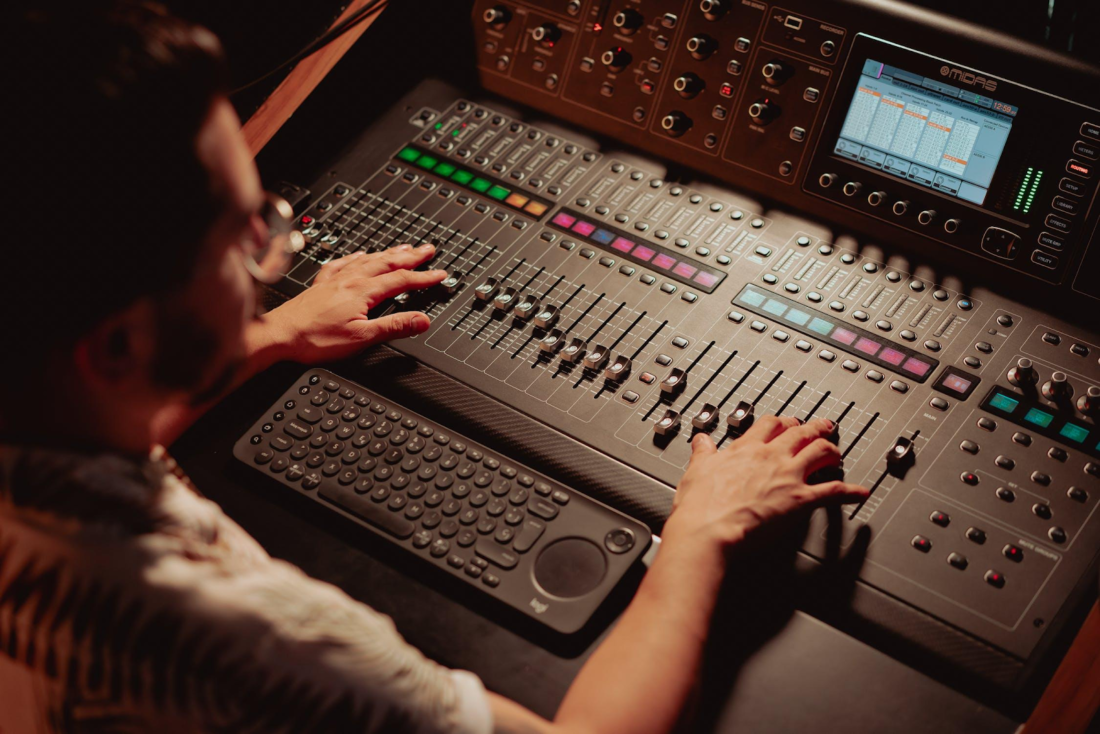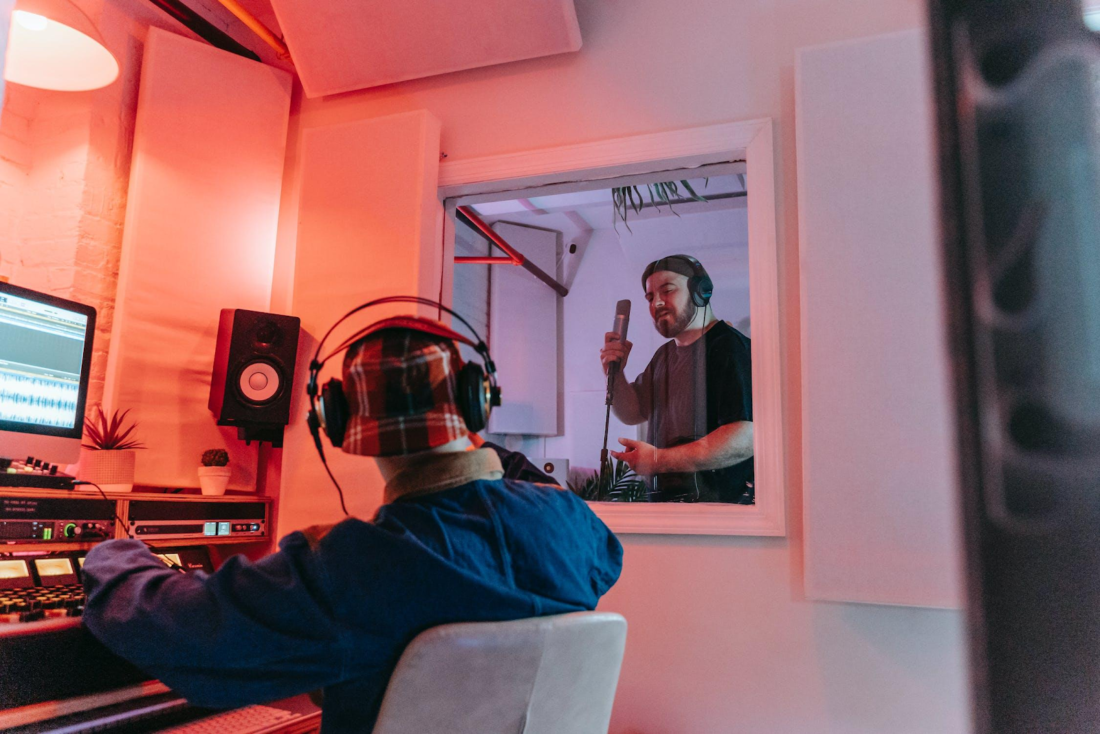
https://www.pexels.com/photo/an-audio-engineer-controlling-the-audio-mixer-7586140/
A sound engineer’s career is a fascinating adventure. It may be challenging for those new to the task to comprehend the fundamentals and what should be prioritized when beginning this new path.
Even though it may be challenging at first, once you figure out what you’re doing and the best way to accomplish it, you may go above and beyond to pass like an expert.
Each department has its own technical terms, phrases, and unspoken conventions specific to its field of competence. The same is true with audio engineering. Fortunately, information about what you should work on while learning to be an audio engineer is readily available. You may improve your life as an audio engineer by following the helpful tips in this article as well as with the ableton course.
Know and Understand Your Gears
Knowing your equipment is crucial for any audio engineer. You must know how to operate that particular mixer, how effects and compression function, and which kind of microphone to utilize in which circumstances.
You should be able to identify each piece of audio equipment in the recording studio, understand what it does, and how it goes about doing it.
Remember that you can get manuals for almost all audio equipment available today. If you need clarification about how a particular mixer functions or a piece of equipment operates, find the handbook and figure out the best way to use it.
Match the Right Gear with the Room
Pay close attention to the surroundings where you want to mix sounds and comprehend the atmosphere naturally created by its shape and architecture. Keep an eye out for any nodes or frequencies that stick out and could be problematic for maintaining the desired level of your primary vocal.
Check if the music you are familiar with sounds like it should be on the audio equipment. Discover the volume that is best suited for that specific location as well.
Only attempt to mount microphones on your equipment if the space where you plan to perform has good sound quality. The entire set will sound awful otherwise. Before you start using the microphones, test out all of your equipment.
Occasionally, a space may not have the ideal acoustics for your equipment. Finding a different spot or using your imagination to enhance the sound could be necessary.
Before adding a microphone to anything, complete this task.
Learn and Practice

Like any good talent, mastering sound engineering takes practice. It would help if you frequently took enough time to learn and practice new skills, such as handling equipment, mastering audio recording and editing software, and working with sounds. It is why the best advice is to practice as often as you can and become knowledgeable with various tools and editors.
Consider how you learned to ride a bike or prepare meals. Initially, you weren’t excellent or flawless at it; you fell off several times and burned some of your food. Learning more effective audio engineering techniques and mastering them requires practice, just like learning anything else. You can also join a live sound mixing course to learn and update your skills.
Additionally, to enhance your practice sessions and sound production, consider exploring various sample packs free. These resources can provide you with high-quality sounds to experiment with and incorporate into your projects.
Try out various pieces of equipment and see what types you prefer. Utilize different editors to determine which provides the finest tools for achieving your goals based on what those goals are. Get to the point where you feel comfortable picking up new talents and honing them with the tools at hand.
Pay Attention to the Plug-Ins
As an audio engineer, you can use a variety of plug-ins. When properly applied, these tools will alter the sound you hear. Just like your musical instruments and microphones, remember that these are devices.
For newbies, keeping their plug-in collection small is an excellent idea. Understand how to use a handful that you consider highly significant at first. Use them repeatedly until you are familiar with their features, potential uses, and potential drawbacks.
You can utilize more plug-ins after you understand how they operate. It enables you to comprehend the plug-ins fully and prevents you from becoming overburdened.
Handle Marketing with Care
In a world so crowded with many other audio professionals that have been around in the industry longer than you, it may seem unattainable to build a reputation for yourself or get your sounds heard when you are just starting.
To gain more customers and jobs, many people would immerse themselves in marketing support that promotes their names to other businesses.
If you are just starting, you shouldn’t have to fret too much about marketing now. Although marketing is good, you should concentrate on learning and producing sounds people want to hear.
While you may believe that marketing is beneficial and will increase your chances of landing a job or other opportunities, it may harm your credibility and image or lead to you working with less trustworthy customers and won’t improve your image.
When you have things to show a customer, then start your marketing. Focus on creating incredible songs and honing your craft in the meanwhile.
Reference Standard Tracks
You must certainly have a preferred genre that drew you into the music industry before you even start. Regardless of the genre, you must thoroughly understand the sound to create in that style.
Listen to some of the songs you love and evaluate them if you’ve done your work on tunes for the day but still have a few hours to kill. Only listen and take notes here.
Note the sounds you hear and any specific aspects of the style. Note the essential ingredients for that genre, the beat per minute (BPM) range it operates in, technical and innovative points from the mixing standpoint, and the elements’ harmony.
Making sounds identical to the tracks already available and rising the hit lists can help you stay on the path with the style you adore.
Beginning as an Audio Engineer

https://www.pexels.com/photo/close-up-shot-of-a-person-using-an-audio-mixer-9275336/
Sound engineering is a skill that requires time and experience to master. Some people seem to intuitively understand how music and how they can apply minor adjustments to create beautiful songs. To achieve this, most individuals must make and correct many mistakes.
You can advance from a novice to a professional in sound engineering by taking some of the steps mentioned above. To become a successful sound engineer, you must put in a lot of practice, work hard, and make many mistakes.




